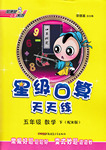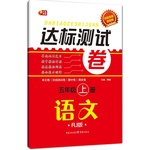题目内容
There is a town near Suzhou. It is very interesting and beautiful. This is Luxiang, an old town.
Luxiang was built in the Southern Song Dynasty(1127~1279). There were many famous people living in the town at that time.There are around 30 old buildings of Ming and Qing(1644~1912) dynasties now. People live a simple life. Six lanes(巷) in the town go to Taihu Lake.
Luxiang looks more beautiful in spring, with many tea trees and fruit gardens. This place is famous for the tea called Biluochun.
The Egyptian pyramids were built around 2560 BC. The largest one of them is the Great Pyramid of Khufu. The King, Khufu, built it as his tomb.
The Great Pyramid was considered a unique building in the 19th century AD. At that time, it was still the tallest in the world. According to scientific research, Khufu ordered his men to build it stone by stone. The biggest stone weighs 15 tons, and each stone was fixed so well.
The Great Pyramid has four sides and each side is 230.4 meters long and 146.5 meters high. At that time, there were no modern machines or equipment, so how did the ancient Egyptians build it? To this day, it is still a mystery.
1.Many famous people were living in Luxiang .
A. from 1127 to 1279
B. from 1644 to 1912
C. from 1127 to 1644
2.Luxiang is famous for .
A. fruit gardens
B. tea trees
C. Biluochun
3.In order to build his tomb, the King Khufu built .
A. the ancient pyramids
B. the Egyptian pyramids
C. the Great Pyramid
4.Building the Great Pyramid is still a mystery now, because .
A. each stone was fixed well
B. there were no modern machines or equipment then
C. it was made of stone
 星级口算天天练系列答案
星级口算天天练系列答案 芒果教辅达标测试卷系列答案
芒果教辅达标测试卷系列答案

